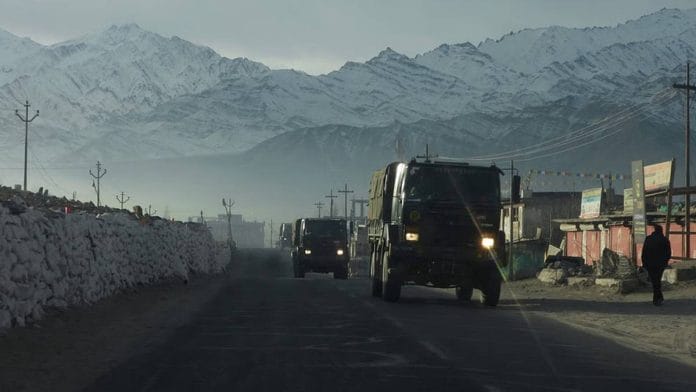New Delhi: As the Indian military moves towards integrated theatre commands, a Parliamentary Standing Committee has given the nod to plans to bring in a law that will enable all existing tri-service and future theatre commanders to exercise disciplinary powers over personnel under them.
The move comes 22 years after India created its first tri-service command — the Andaman and Nicobar Command.
While the Defence Ministry introduced The Inter-Services Organisations (Command, Control and Discipline) Bill, 2023 in March this year, it was referred to the Parliamentary Standing Committee on Defence.
The committee in its report tabled Friday has backed the bill and sought its passing without any amendments.
Personnel of the Indian Army, Navy and Air Force are governed in accordance with the provisions contained in their specific Service Acts — the Army Act 1950, Navy Act 1957, Air Force Act 1950.
When these Acts were enacted, most of the service organisations were largely composed of personnel from a single service.
However, presently there exist several inter-services organisations (ISO) such as Andaman & Nicobar Command, Strategic Forces Command, Defence Space Agency and joint training establishments like the National Defence Academy, and National Defence College, where personnel of different services work together.
Despite the fact that several inter-services organisations are fully operational, the commander-in-chief or officer-in-command of the inter-services organisations are not empowered to exercise disciplinary and administrative powers over personnel belonging to other services.
Officers of respective services are empowered to exercise disciplinary powers over service personnel under the respective service acts only. Hence, personnel serving in these inter-services organisations need to be reverted to their parent service units for undergoing any disciplinary or administrative action.
Also read: Modi in France, Navy gets €10 bn boost as proposal for 26 Rafale-Ms, 3 Scorpenes cleared
What the parliamentary panel said
As reported by ThePrint earlier, the new law will allow a commander-in-chief or officer-in-command of an inter-services organisation to exercise disciplinary powers over personnel of any service who are serving under or are attached to “his” command.
Incidentally, the bill uses the pronoun “his” when referring to commanding officers rather than being gender neutral, even though the armed forces have now allowed women to take over command roles.
This new bill comes at a time when India is moving towards having theatre commands that will see personnel from all three services under one commander, who can be from any service depending on the theatre.
As reported, India is speeding up work on setting up two integrated theatre commands to take on Pakistan and China, with the first to come up opposite western borders, as well as a maritime theatre command.
The Parliamentary Committee in its report said that it is learnt that for the purpose of the bill, an ISO will have to be constituted/notified/declared based on the capability of the organisation to execute requisite disciplinary powers.
For instance, the Andaman and Nicobar Command, the tri-services theatre command of the Indian Armed Forces, is still not ‘constituted’/notified as an ISO for the purpose of the bill.
The Central government, after enactment of the bill, has the power to “constitute” an organisation or unit or establishment as ISO, depending on its wherewithal to execute the mandate of the bill, the committee added.
In this regard, the committee said it was of the considered view that enactment of the Bill will herald greater integration and jointmanship in inter-services organisations or establishments, the report said.
(Edited by Poulomi Banerjee)
Also read: India begins manufacturing C-295 aircraft for IAF, more orders to be placed






